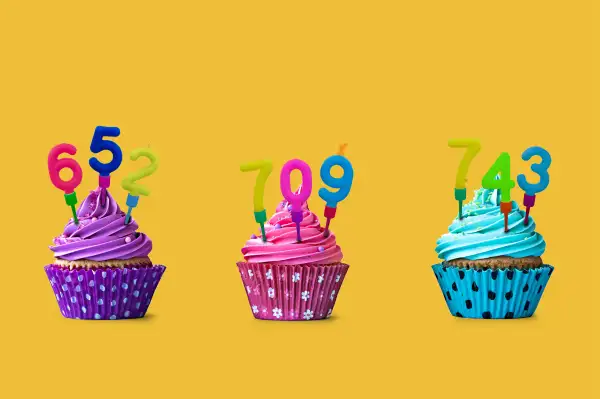This Is the Average Credit Score for Every Age

The average American’s credit score has been ticking up over the past few years, hitting a record 700 last year. But that strong national average hides a wide age-based range.
There is a 91-point difference between the average scores of those in the oldest bracket of consumers and those in the youngest group, according to a new analysis that FICO performed for Money. With each decade, the average score increases by about 20 points.
FICO is the most widely used credit score, a number that’s used to measure individuals' creditworthiness. Scores range from 300 to 850, and anything above 720 is considered excellent.
While the FICO score calculation doesn't directly consider age, 15% of the score comes from the length of your credit history—putting younger people at a natural disadvantage. Likewise, 10% of the score is based on the mix of debt you have; it’s better to have a diverse mix—from a mortgage to student debt to car loans—than a single credit card. (And younger consumers are less likely to have a mortgage; the median age of first-time home buyers is 32, a report last year found.)
The largest factors, comprising 65% of the score, are on-time payment history and "credit utilization"—that is, how much you're using of the total credit you have available.
More than half of consumers had a score above 700, according to FICO analysis of scores in April 2017.
Your credit score affects your financial life in multiple ways: Lenders assign interest rates based on the bracket your score falls in. Landlords often require a minimum credit score in order to rent an apartment without a co-signer on the lease. Poor credit even affects how much homeowners pay for insurance.
How does your credit score stack up against the average for your age group? Here are the average scores by age, as of April 2017:
- 18-29 years old: 652
- 30-39 years old: 671
- 40-49 years old: 685
- 50-59 years old: 709
- Age 60+: 743
